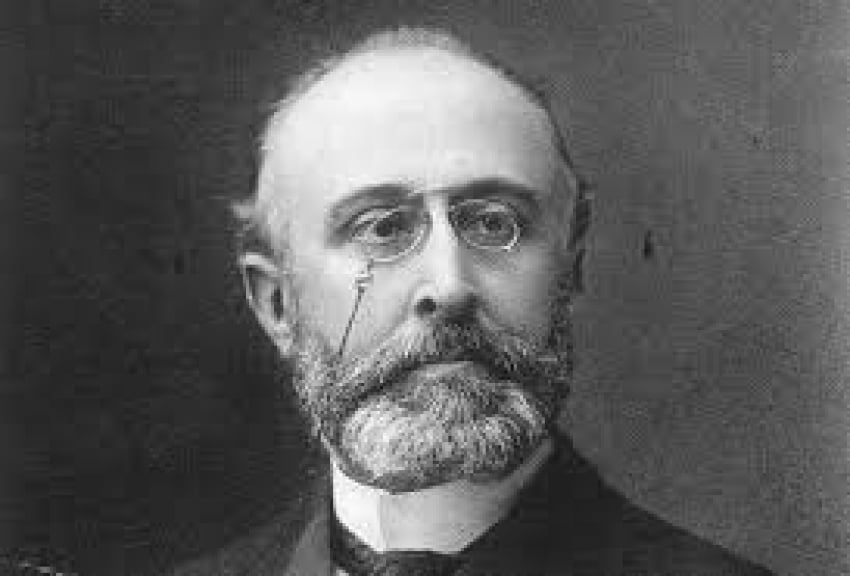Let us begin with those who are leaving. No matter how one looks at it, big changes lie ahead for the United Kingdom. Scottish nationalists have already threatened to leave because they want to remain in the European Union. As for the Irish nationalists - Sinn Fein, the political arm of the IRA, a terrorist organization - has also indicated that it wants Ulster to break away from the United Kingdom and join the Republic of Ireland. But beyond such undesirable pronouncements about the breakup of the United Kingdom, lies the economic situation, which will become difficult. British exports will once again encounter customs barriers, its workers will have to overcome obstacles in order to succeed in the European Union and investments will shrink significantly. True, they can expel some immigrants and reduce social services for foreigners, but frankly the cost of Brexit is so high that this won’t even make up for the drop in the stock market.
And what will happen with the rest of Europe? French and Dutch nationalists - fed up with European regulations and having to relinquish their sovereignty to the European Union - have already called for referendums in their respective countries. In other words, they will play the British card to their advantage. As for Podemos, the Chavist party in Spain’s political arena, it has already publicly praised the Brits. They don’t want to leave to EU - Who would then pay for their profligate spending? -, but they do dream of breaking free from the euro and taking control of printing money, copying the great feats of Hugo Chavez in his early years. Incidentally, Spain is one of the countries especially affected by the United Kingdom’s departure.
The effects of Brexit on Spain are indeed undesirable. To begin with, British investments in Spain, and most likely tourism as well, will diminish. Since the British are the primary consumers of Spain’s tourism and since this is one of the few sectors that was almost completely unaffected by the crisis - Cristóbal “Nosferatu” Montoro, Spain’s disastrous Minister of Finance, has not succeeded in imposing taxes on the sun - the reader can well imagine what lies ahead. In addition, Spanish exports to Great Britain will be negatively impacted, and once again we are talking about one of the three largest investors in that beautiful southern European nation. Add to all this the enormous exposure of Spanish banking to the vicissitudes of Britain’s economy - the Bank of Santander and the Bank of Sabadell could face disaster -, a risk premium that has already begun to increase, and the horrific debt that Montoro racked up over the last four years (more than a 100% of the Gross Domestic Product!), and it seems like the country is being trampled under the hooves of the four horsemen of the Apocalypse. Nevertheless, to be fair, there are favorable opportunities opening up for Spain. For example, Spain can truly reclaim - truly, and not some shared sovereignty nonsense - Gibraltar. It can begin by closing the border between the country of Spain and the colony and stop the use of Spanish infrastructures for the types of business deals that would make any financial paradise look like purgatory in comparison. Also, with Great Britain out, it is within Spain’s reach to lead a coalition of European nations that would end the Franco-German duopoly. Spain could even champion a truly liberal polity - liberal in the European sense - in the EU, one that is far removed from the clutches of an incredibly costly bureaucracy, which was a large part of the reason for Britain’s departure. These opportunities exist and are realistic, but they do require at the very least that the President of the Government speak English, something that so far only Aznar has done.
Realistically, Spain will not be able to avoid the negative consequences of Brexit, and this is not the best time for it to have to deal with these. The positive consequences are another story. If Spain were indeed ready to let go of a vision that sees in the state the solution for all its problems and take a chance on the idea of freedom, extraordinary opportunities for the future would open up. The question is, will it be able to seize these opportunities? Because the truth is that ever since the 16th century, Spain has missed every chance to take advantage of historic opportunities.
Of course the reader will ask if all this turmoil in Europe has any effect on America. The answer is that it does, and a great deal more than the media convey. The United States has lost its chief and best ally within the European Union. In real terms Great Britain is an even more important ally than Israel, with more international clout, and unlike Israel, it has never passed on information to the enemies of the United States, as happened in the notorious Pollard case. It must be remembered that NATO itself was a British idea that can be summed up by the following declaration: “to keep the Russians out, the Americans in and the Germans down.” In other words, the primary objective of NATO was not to defend freedom in the face of Communism, but rather to rebalance the post-war hegemonies. Great Britain, with the United States as its ally, counted on maintaining its dominance even though it could lose its colonies, as long as the Russians weren’t able to touch the ball and the Germans received enough penalties. Parenthetically, NATO was indeed a buttress against the USSR, but it is not so easy to defend the idea that is is a champion of democracy. For example, Turkey, despite its dictatorships and coups, remained in NATO because it was vital in fencing in the USSR. This explains why General de Gaulle, a resolute anti-communist, didn’t want France to belong to the military structure of NATO and did all he could to prevent Great Britain from joining the European Common Market, the direct predecessor of the present-day European Union. De Gaulle knew that the United Kingdom-United States duo would mold European politics in its favor, and as a good Frenchman, this was something he could not tolerate. Indeed, those familiar with de Gaulle’s life - he confronted half a dozen U.S. presidents - will understand much of what is happening in Europe.
Great Britain’s entry into the European Common Market was enormously beneficial to the United States. It guaranteed them enormous leverage in European politics, no longer just through NATO, but now also through organizations of a united Europe to which the whole world wanted to belong. This explains President Obama’s trip to Great Britain on the eve of the referendum to support its remaining within the EU. This was not only about having a voice in the EU that would support ventures such as the coup d’etat by nationalists in Ukraine - one of the greatest mistakes made in the last several decades, comparable to supporting the so-called “Arab springs” - but it was also about securing a Free Trade Agreement, one of the most exceptional bids to insure North American hegemony in the future. It will be very difficult to maintain sanctions against Russia in the near future, and a Free Trade Agreement may become an impossibility without Britain’s support and with several countries in Europe determined to regain what they consider their lost sovereignty. Personally, I don’t share the thoroughly gloomy view that some have of Obama’s foreign policy. In fact, I believe it will be seen in a much more favorable light a few decades from now. Nevertheless, his European geopolitics has undeniably suffered a substantial blow, although the responsibility rests on our principal allies.
North America’s influence in Europe will not disappear overnight, but the first steps in this direction have been taken, and a Trump presidency could even start a race down that road. Because on top of everything else, British politics is coming dangerously apart. Some Labour Party members have joined with a divided Tory Party. These Labour Party members have never questioned their presence in NATO, but they themselves are being highly questioned by voters. In reality, Brexit has been a defeat for them as much as for the Tories.
It goes without saying that there will be further repercussions on both sides of the Atlantic. The EU will surely rethink its tolerance - a tolerance spurred by the United States - towards an Islamist Turkey that is brazenly helping ISIS. Yet everything is tolerated because it forms part of the squeeze on Russia. It can’t be censured. The fact that more than a hundred million Muslims become part of Europe just to irritate the head honcho in the Kremlin isn’t an attractive, let alone wise, policy.
Meanwhile, in the Middle East Iran is rubbing its hands together because the EU has decided to make the dictatorship of the ayatollahs a special supplier of crude oil, in return for supporting its nearsighted policy of confrontation with Russia. True, such a policy does hurt Russia, but it’s debatable whether or not it benefits Europe and the West. Lastly, a European Union without the United Kingdom will be much tougher with Israel. Not aggressive, but certainly stricter.
Finally, we can have no illusions regarding Latin America. We can expect Spain - with a few exceptions such as in the case of Venezuela - to continue to play the role of an advocate for the most odious dictators, because it can build hotels in their countries. These same dictators are ever so pleased that the United States has to figure out how to repair the hole the British have made in the European theater. With elections at hand, it’s hard to believe that a White House occupant will consider the terrain south of the Rio Grande more important than the one north of Gibraltar.
One can understand why the Brits voted to leave the European Union, but we must recognize that they have caused a great deal of turbulence. We cannot predict the final consequences of this move, but what we see already does not look good.









